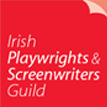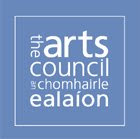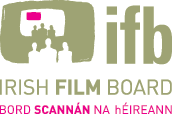 Here are the central tenets of the The National Campaign for the Arts:
Here are the central tenets of the The National Campaign for the Arts:
Why the arts are central to economic and social recovery:
1.The arts and our reputational capital
Every day without fail, on the world’s cinema screens, bookshelves, theatres and concert stages, Irish artists are our perpetual trade mission, defending and redeeming our global reputation at a time when it is under the most rigorous scrutiny, and offering the most spirited riposte to the perception of a nation in duress. We are economically bloodied, we are culturally unbowed.
"Most Americans encounter Ireland today through culture: whether that is Irish dance and music, Irish film, Irish writing or an Irish play on Broadway. We have to be prepared to invest in our cultural infrastructure here, as we do in Ireland. As a first step, I am asking Culture Ireland with the Department of Arts, Sports and Tourism and the Department of Foreign Affairs, to prepare a series of high profile cultural events in this country in 2011 to take advantage of recovery". Taoiseach Brian Cowen, Spring 2009, speaking in New York.
"The Government firmly believes that our cultural and artistic reputation is one of our most potent calling cards internationally and it is imperative that we continue to fund and support activity in this sector in the coming years."- Martin Cullen TD, Minister for Arts, Sport & Tourism at Edinburgh Festival, Aug 09
- According to the statistics compiled from box office host venues presenting Irish work overseas verify that over 500,000 people worldwide attended a theatre and/or dance performance by an Irish company in 2008.
INTERNATIONAL AWARDS FOR IRISH ARTISTS
- 1 Tony Award 2008, five nominations
- 2 Academy Awards 2008, five nominations
- 2 Golden Globes 2009, three nominations
- Man Booker Prize winners 2005 and 2007, shortlisted 2004, 2008, longlisted 2009
- 7 Edinburgh Fringe Firsts for Irish theatre and dance shows over three years (2005-2008)
2. The arts and the smart economySince long before the term existed, the arts have been our greatest creative industry, and today the arts brilliantly foster those attributes so important to the smart economy that is vital to our future collective wellbeing. Lateral thinking, big ideas, resourcefulness and invention, problem solving, vision and originality find full expression in the output of Irish artists, and their work percolates every walk of Irish life. Our artistic community is a nerve that flexes the creative economy muscle.
"Ireland is hugely successful in the arts. Innovation is about creativity and skills, just like art is. Princeton has decided on a drastic expansion of its arts departments. You will not be able to get a degree in electrical engineering from Princeton without having followed a class in drama. The reasoning is that anyone can acquire skills, but the competitive edge is in creativity. Ireland beats Princeton hands down in the arts.
– Dr. Richard Tol, Research Professor, ESRI
3.The arts and cultural tourismThere is a reason that visitors are still compelled to travel here in their thousands, dispersing billions in our local economies in the process. Cultural tourism is a genuine growth industry in Ireland, and just as with our landscape and heritage, the arts have a starring role in how we give our visitors a unique cultural experience, from our mighty international festivals of the performing arts to our vivid traditional music by a convivial fireside hearth. Long before they arrive, it’s our writers, filmmakers and touring performers who whet their appetite to come.
"Ireland enjoys a rich cultural heritage that is central to whom we are. This is a clear attraction for those who wish to visit Ireland and is appreciated by those who spend time here.”
- Tourism Ireland, A New Strategy for Cultural Tourism in Ireland
- Cultural Tourism is worth over €2 billion to the economy – this includes both domestic and overseas tourism. Source: Failte Ireland Survey of Overseas Travellers/CSO Travel and Tourism
4. The arts and employmentCulture and the creative sector generate 170,000 jobs, a significant ratio of them in the arts, among them practitioners, technicians, producers, curators, publishers and the other highly skilled disciplines that work together to create art from Ireland. We are an indigenous industry, active in every county, we are wholly Irish owned and we are exporters. Our earnings are not repatriated, and we are spending locally.
5. The arts and the national psycheOur artists steer a course for shore when the waters around us become uncertain. They are a celebration of our shared gift for self expression, our capacity for resilience and reinvention, and a mechanism for us to heal and resonate, understand and reconnect. The artist’s voice is woven into our discourse, reconciling the past, imagining a future, and as important now as at any of the precipitous moments when our forefathers called upon its counsel. The citizenship of the artist is always active.
"We need to listen to everyone who has something to contribute; yes the business sector and the financial experts, but also the social entrepreneurs and innovators, the teachers who educate our children, social workers and activists …. We should also listen to our creative artists." – Former President Mary Robinson at Beál na mBláth, August 2009.
The National Campaign for the Arts wants:
- Retention of Culture Ireland, the agency for the promotion of Irish arts worldwide
- Retention of The Irish Film Board, development agency of the Irish film industry
- Maintenance of existing levels of funding to the Arts Council
- Retention of the artists income tax exemption scheme
- Commitment to retain the arts portfolio at cabinet as part of a senior ministerial portfolio












